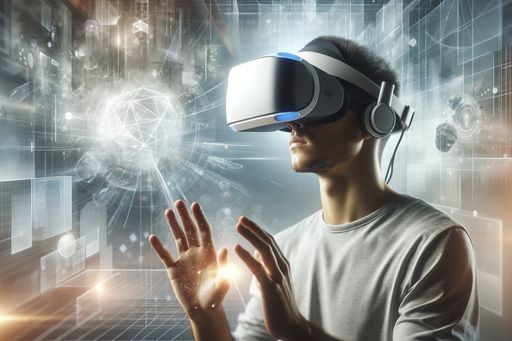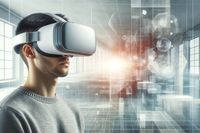What mice in VR goggles can tell us about our brains
Lab mice wearing virtual reality goggles are helping researchers study memory formation and degenerative brain diseases.

How mice in VR goggles are advancing our understanding of memory
Researchers from Northwestern University have developed virtual reality goggles for lab mice to wear in order to study how they form memories. By placing the mice in digital mazes, the researchers can identify the neurons in their brains that are involved in memory formation.
The VR goggles work by displaying a virtual world to the mice and allowing them to navigate through it. The researchers can then use advanced microscope systems to study the brain activity of the mice as they navigate the mazes. They are specifically looking for the exact neurons and synapses that are being modified in order to form memories.
Understanding how memory works in mice can eventually lead to a better understanding of how memory functions in humans and how it is affected by neurodegenerative diseases. The virtual reality environment allows researchers to conduct experiments that would be difficult or impossible in the real world.
Implications for human brain research
Studying memory formation in mice can provide insights into how human brains process and store memories. By studying how the navigation systems in the mouse brains react to stimuli, researchers can gain a better understanding of how humans know their location in their surroundings and how they form memories of their experiences.
Additionally, the research may shed light on how the brain's imagination process works. By observing the mice's behavior in response to virtual predators, the researchers discovered that the navigation neurons were reading out a different location from where the mice actually were. This finding may help explain how imagination emerges in the brain.
Overall, the use of VR goggles on mice opens up new possibilities for studying memory and brain function, with potential applications for understanding neurodegenerative diseases and developing treatments.
Future of VR mouse research
The researchers at Northwestern University plan to continue their studies using VR goggles on mice. They aim to develop even smaller goggles that mice can carry around and use to navigate virtual mazes in the real world. This would allow for more realistic and complex experiments.
By expanding their research, the team hopes to further uncover the intricacies of memory formation and brain function. The ultimate goal is to apply this knowledge to understand how our memories degrade due to neurodegenerative diseases and to develop new treatments.
The combination of virtual reality technology and mouse research has the potential to revolutionize our understanding of the brain and open up new avenues for exploring memory, imagination, and cognitive processes.


